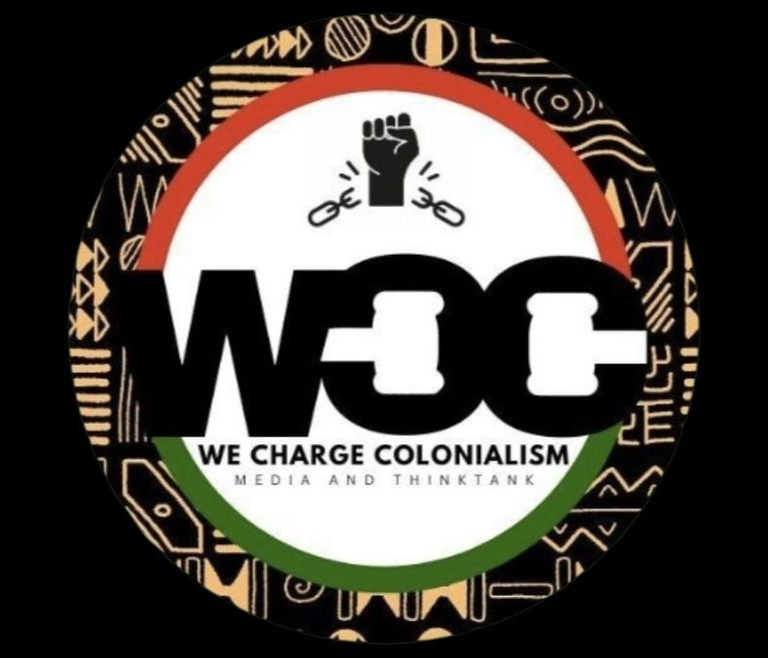4 Afro-Diasporan Women Who Challenged U.S. Imperialism
This articles explores the life of resistance of four Afro-Diasporan women and their contribution in the resistance to U.S. imperialism.
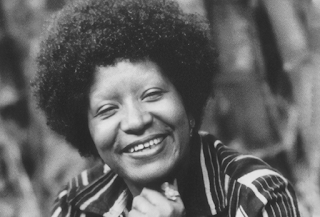

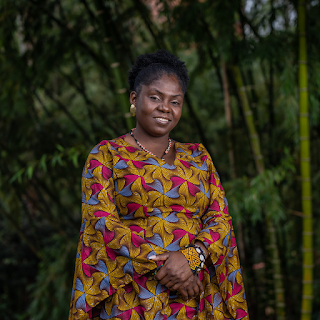

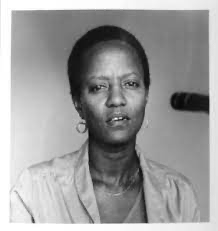

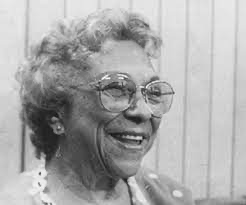

Popular discussion around racism and the United States often tends to overlook predatory US foreign policy and its effects on race. The United States has long seen Black people from any part of the diaspora as exploitable, oppressable, and disposable, and centuries of policy have reinforced this relationship. Enslaved Africans, whether born in Africa or into the plantation system, were routinely sold across colonial borders. In 1822, the United States codified its illegal purchase of slaves from Latin America and the Caribbean through the Monroe Doctrine. While this was stated as a position meant to curb European influence on the Americas, in reality it gave implicit state backing to the illegal slave trade between the Caribbean and the United States that the US was reliant on for its slave-based economy.
This is the pretext for US foreign policy in the Caribbean and Latin America. The United States has repeatedly forced the horrors of enslavement and oppression on Blacks in the Caribbean and Latin America, whether through direct military intervention or intense campaigns of propaganda and support for exploitative industries or regimes financed by American money.
In honor of the recently passed ‘Julho de Pretas,’ (Black Women’s July) and African Womens’ Day on August 6th. Afro-Caribbean and Afro-Latina women have resisted and continue to resist US imperialism, and the importation of US white supremacy, with dedicated fierceness and struggle that would inspire countless generations of activists across the whole of the African diaspora. Here are four examples of Black women leaders against American imperialism, and the movements that they were a part of in mutual struggle.
Leila Gonzales
Born in Belo Horizonte, Brazil, in 1935, Leila Gonzales was a prominent Afro-Brazilian scholar and prominent theorist on Black Brazilian thought. With a bachelor's degree in History and Philosophy, she became a teacher in public schools. Following this, she received her master's degree in Social Communication and her PhD in Political Anthropology. In her academic career, worked at Pontificia Universidad Católica de Río de Janeiro as teacher and head of the Sociology and Politics department. Her academic work merged with her academic interests, as her research focused on the political, economic, and social conditions of Afro-Brazilian women while founding institutions such as the Research Institute for Research Institute of Black Cultures (Instituto de Pesquisas das Culturas Negras, IPCN), the Black Women's Collective, N'Zinga, and the group Olodum. Through these institutions, she helped to rigorously develop the politics of Brazil’s Black Movement in a time of increasing political hostility.
“By reclaiming our difference as Black women, as Amefricans***, we know very well how much we bear the marks of economic exploitation and racial and sexual subordination. And this is exactly why we bear the mark of everyone’s liberation. Therefore, our motto must be: organizing now!”
Her political work around Black Brazil was especially daring for its place in time. In 1964, a CIA-backed military coup overthrew the progressive democratic government of Brazil. What followed was a 21-year-long military dictatorship, totally funded and supported by the United States. While the regime oppressed many groups, including LGBTQ people and labor activists, its first and greatest target was Afro-Brazilians. Dr. Keisha-Khan Perry, a scholar of Black social movements, referenced the specific techniques of torture that the Brazilian government employed on activists as stemming from Brazilian slavery. Images from the time of the Brazilian dictatorship show young Black boys tied to poles and buckets, with arms and knees bound, in a position depicted in a Brazilian artwork as a slave punishment over a century earlier. From Dr. Perry: “You cannot separate militarized violence…you cannot separate how those techniques had already been perfected on a Black and brown population in Brazil.” Leila Gonzales’ sharp criticism of the government, and activism across Black Brazil, earned her constant surveillance throughout her career.
Jacqueline Creft
On the 13th of March, 1979, a group of Grenadan grassroots organizers in the New Jewel Movement (NJM) overthrew the oppressive regime of Prime Minister Sir Eric Gairy and his secret police known as the Mongoose Gang. This revolution ushered in a new era for the island, providing a glimpse of what the future of the Black Power movement could look like to Black people across the diaspora. Black families from across the diaspora moved to the island to participate in this new, Black Socialist society. Among other advancements, its emphasis was placed on:
“raising levels of social consciousness; building a national ethos that encouraged a sense of community; organizing agrarian reform to benefit small farmers and farm workers; promoting literacy and adult education; fostering child and youth development; enacting legislation to promote gender justice; constructing low income housing and launching house repair programmes; improving physical infrastructure and in particular the construction of an international airport; providing an environment that encouraged popular democracy through Parish and Zonal Councils etcetera. In hindsight, one of the fundamental objectives of the Grenada Revolution was to improve the lives of the Grenadian people within a comprehensive social and human development framework, following a mixed economy approach.”
This revolutionary, Caribbean triumph only lasted four years, however, before a combination of internal and external contradictions collapsed the revolutionary government.
These advancements, especially with regards to the advancements of women, were inseparable from the leadership of women in the New Jewel Movement. Chief among them was Jacqueline Creft, Minister of Education under the New Jewel Movement’s government. Born in 1946, Creft had been a member of the revolutionary movement of Grenada from a young age, with her early activism focused on opposing British aristocracy on the island. She traveled across the Americas while earning her degrees, working, and organizing, before she returned to Grenada 1979 to participate in the country’s revolution. Shortly after, she rose to the position of Minister of Education, a position from which she was able to speak directly with Grenada’s women and children, who she viewed as the future of the revolution. At the 1st International Conference in Solidarity with Grenada, she spoke directly to her values as a revolutionary and educator, saying: “‘Education is a must!’...With it, we can and will transform our nation, and in doing so transform ourselves and our children, and become the catalyst for the growth of people’s power right through our region.”
The advancements of the Grenadian Revolution were concerning American imperialists. Using their traditional tactics of sabotage, widening the cracks between revolutionaries to encourage them to snitch and betray one another, Grenada was first divided by an internal coup and later invaded by United States military in 1983. United States’ counterintelligence had been at work in the island since the beginning of the revolution. The attacks from the imperialists were multifaceted: Not only had mercenaries from Miami’s Cuban Exile community sailed to the island to overthrow the NJM in 1979, gangs operating within Grenada committing attacks on civilians were found with pro-NATO propaganda and sophisticated weapons and explosives. American diplomats treated Grenada with a combination of arrogance and dismissal towards the island, and CIA agents openly operated against the government therein. With internal contradictions and external pressure from Western covert agents leading to a major split between the New Jewel Movement’s leadership, Jacqueline Creft sided with her lover and Grenada’s Prime Minister, Maurice Bishop, against Bernard Coard. Coard was another leader in the NJM, whose disputes with Maurice Bishop erupted into a violent coup. Maurice Bishop and Jacqueline Creft were summarily executed for their opposition to Coard, and Coard’s new ‘revolutionary’ government was subsequently invaded by the United States shortly after. As a committed revolutionary in Grenada, against an increasingly hostile United States, Creft demonstrated unyielding loyalty and integrity to the people of Grenada, who she always put at the forefront of her work.
Francia Marquez
Francia Marquez is the Vice-President Elect of Colombia. While she has entered popular consciousness for being the first Black Vice President of Colombia, a historic date, her ascent to politics looks much different than Black political ‘famous firsts’ that Black people in the United States will recognize. While selling out the Black community is practically a prerequisite for political and economic prominence in the United States, Francia Marquez has reached her heights within Colombian politics because of her commitment to grassroots, Black political causes in her country. This has put her in opposition with Western multinational corporations, who still profit from the exploitation of Colombia’s natural resources and perpetuate violence against the many Afro-Colombians.
Marquez was born in the village of Yolombo, Colombia, in 1981. Yolombo is located in the resource-rich Cauca Department, a region of the country situated on the Pacific coast and home to many of the country’s African peoples. Afro-Colombians communities are among the most impoverished in the country, owing to a long history of exploitation and oppression by national, multinational, and paramilitary threats. Coupled with the fact that Colombia’s Pacific Coast is one of the most biologically diverse and rare mineral rich regions in the world, Colombia’s Afro-Cuban population has been increasingly exploited in recent history.
It was this exploitation that Marquez organized against. In 1994, at the age of 13, Francia Marquez organized with her community to protest a new dam that would damage her people’s ecosystem and water supply. After this, she became a community activist and educator, working with local farmers to make their work sustainable and joining the national Afro-Colombian network to promote political action among Colombia’s Black people. She successfully organized against AngloGold Ashanti, a multinational gold mining conglomerate with headquarters in New York, London, and Johannesburg. She later attended a peace summit between Colombia’s FARC and National Government, advocating for Black involvement in the peace process within the country.
All of this organizing activity led her to politics. In the 2022 election campaign, she ran as a candidate for president on a platform that would restore Black and Indigenous power over their communities. Arriving in second place in her party’s primary, she accepted the nomination of Vice-President to President Gustavo Petro. While on the campaign trail, she condemned the United States for its attempts to meddle and overturn their election. Her consistent advocacy for Black self-determination has made her a natural enemy of United States-backed paramilitaries, corporations, and political slander.
Melba Hernandez
Melba Hernandez was a prominent Afro-Cuban revolutionary during the Cuban Revolution. Born to a mixed (African and white) family in 1921, she became a grassroots activist after her training as an attorney in the University of Havana. Hernandez joined the underground struggle against the US-backed dictator Fulgencio Batista, and found herself imprisoned and later exiled to Mexico for her involvement in that struggle. When she returned to the island in 1956, she was already a committed guerilla warrior for the Cuban revolutionary cause.
In the revolution itself, Afro-Cuban women, such as Hernandez, played indispensable roles. In addition to being warfighters and guerillas, women were key organizers of entire communities throughout the entirety of the Cuban revolution. Afro-Cuban women who supported the revolution recalled having seen uniforms, donated food, and “did whatever they could to help the revolution succeed."
The US has targeted Cuba with extreme methods since the beginning of the Cuban revolution. From the onset, the US government’s warm relations with ousted dictator Batista was a cause for concern. The Cuban Revolution’s African content and leadership also became a symbol for Black liberation in the United States, with thousands gathering to celebrate Malcolm X’s warm reception of Fidel Castro in 1960. As a result, the United States has employed decades of sophisticated terror techniques to torture the Cuban island and the Cuban people, with the West’s implicit support. Most obvious is el bloqueo, the laws of sanctions, tariffs, and diplomatic isolation that the United States uses against Cuba.
As a prominent Afro-Cuban revolutionary, Melba Hernandez was deeply involved in the broader decolonial movement across the world. She was the head of the Cuban Committee in Solidarity With Vietnam while the US invaded to support the France-backed regime, and she later became the Cuban ambassador to Vietnam and Cambodia during the 1980s. She was also actively involved in the Organization of Solidarity with the People of Asia, Africa and Latin America( OSPAAL ), where she became Secretary General. OSPAAL’s purpose was to facilitate revolutionary solidarity between the different revolutionary groups operating across Africa, the Americas, and Asia.
There are countless examples of African women’s courage in fighting Western imperialism, beyond these examples. As Afro-Latina and Afro-Caribbean women, the history of their country and their struggle is invariably bound with the history of the United States and the fate of the African diaspora. These five women share not only geographic and racial heritage, but also, a willingness to fight for their people against a larger oppressor. These women share keen political insight into their race’s histories and futures, where they have theorized, fought, and worked for the common betterment of their Black communities. In all cases, it was towards positive social ends: Leila Gonzales, and Francia Marquez were instrumental in building strong organizations, while Melba Hernandez and Jacqueline Creft were on the front lines of literal revolutions, becoming leaders in their own struggles and leading the revolutionary governments of their counties. In all cases, they each came to oppose a different manifestation of Yankee Imperialism in their country, the common force that exploits Black Americans within the United States and Africans all across the diaspora.
Through these women, we see also the diversity of tactics that the enemy uses to destroy African revolutionaries. The United States treats all Black people as subjects, no matter their national heritage or geography, and is willing to employ any strategy to finish the task that keeps the Black population subjugated. In these five women, we see heroic resistance to Western economic exploitation, psychological propaganda, and military violence. As Juhlo des Pretas was made to honor Afro-Latina and Afro-Caribbean women specifically, their example can remind us of Leila Gonzalez’s sage words: “Organizing NOW!”
Notes:
1) Jennifer Faith Gray, “An Analysis of the Intra-American Slave Trade to North America and Spanish America, c.1660-c.1730.” Scottish Center for Global History. An Analysis of the Intra-American Slave Trade to North America and …2) Matt D. Childs, “No God But Gain: The Untold Story of Cuban Slavery, The Monroe Doctrine, and the Making of the United States, by Stephen Chambers,” New West Indian Guide, (2009). https://brill.com/view/journals/nwig/93/1-2/article-p162_36.xml?language=en4) Raquel Barreto, “Lélia Gonzalez: A Brazilian Thinker,” Capire, (2021).https://capiremov.org/en/analysis/lelia-gonzalez-a-brazilian-thinker/ Jean-Baptise Debret, “Feitors corrigeant des negres,” (1834-1839). https://digitalcollections.nypl.org/items/510d47df-7987-a3d9-e040-e00a18064a99Keisha-Khan Perry, “How did Afro-Brazilians experience the military dictatorship in Brazil?” Brown University, (2016). https://www.choices.edu/video/afro-brazilians-experience-military-dictatorship-brazil/Chris Searle, (1983). Grenada: the struggle against destabilization.Jorge Heine, (1990). A Revolution aborted: the lessons of Grenada. (1991) BuildGrenada, “Third Festival of the Revolution,” (1976). http://cls-uk.org.uk/wp-content/uploads/2018/02/3rd-festival-of-the-revolutioEd Newman, “Francia Marquez accuses U.S. of intervention in Colombian elections,” Radio Havana Cuba, (2022). https://www.radiohc.cu/en/noticias/internacionales/287835-francia-marquez-accuses-us-of-intervention-in-colombian-elections“2018 Goldman Prize Winner Francia Marquez,” Goldman Environmental Prize, (2018). https://www.goldmanprize.org/recipient/francia-marquez/#recipient-bioEmile Schepers, “Melba Hernandez, 93; Leader of the Cuban Revoltuion,” People’s World, https://www.peoplesworld.org/article/melba-hernandez-93-leader-of-the-cuban-revolution/ Simon Hall, “Fidel Castro Stayed in Harlem 60 Years Ago to Highlight Racial Injustice in the U.S.”https://www.smithsonianmag.com/history/fidel-castro-harlem-60-years-ago-180975863/
